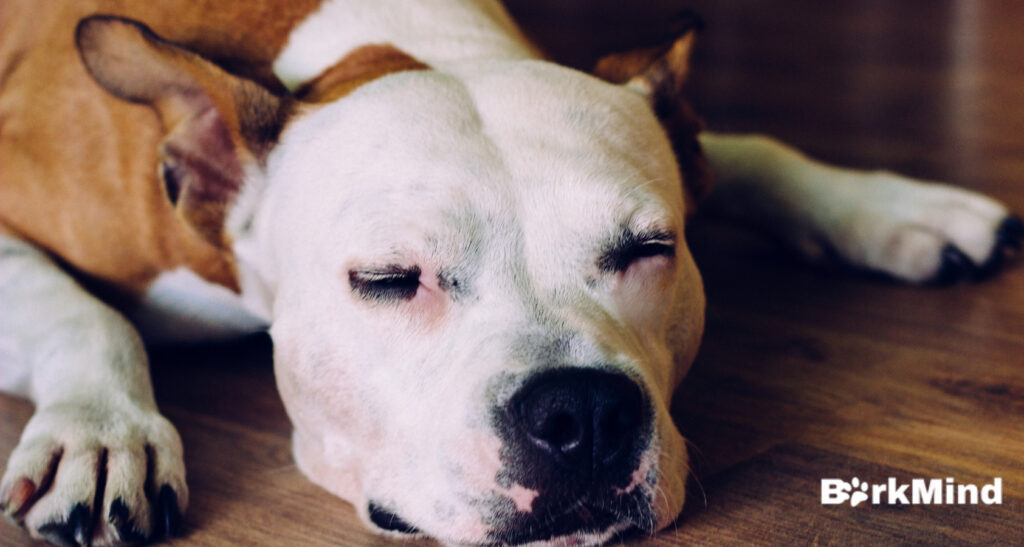Canine Epilepsy: 5 Important Tips If Your Dog Has A Seizure
Last updated on March 20th, 2023 at 08:15 pm
Reading Time: 5 minutesThis post may contain affiliate links. If you click and buy we may make a commission, at no additional charge to you.
Canine Epilepsy: Top 5 Tips If Your Dog Has A Seizure
There is hardly anything as distressing for a pet parent as witnessing your dog having a seizure. These situations can fuel your anxiety and make you feel out of control, and while once upon a time euthanasia was considered the standard protocol for dogs with seizures, that is not the case any longer.
With the development in medicine and science, there are many healthcare routes you can explore. Epilepsy is, unfortunately, not curable. But it can be controlled through certain drugs that can help your dog lead a seizure-free lifestyle!
What Can Cause Your Dog To Have A Seizure?
Before we get into the protocol you will need to take up if and whenever your dog has a seizure, let’s have a closer look at the factors that can lead your dog to have seizures:
Seizures usually result from abnormal activity in the brain. They can lead your dog to lose control of their body movements. While they may prove to be dangerous, they are relatively common in canines and dogs.
Many causes can lead to your dog developing seizures. However, epilepsy remains the most common one.
Other causes include:
- Brain tumors
- Hypoglycemia – low blood sugar
- Stroke
- Calcium deficiency
- Kidney or liver disease
- Poison
- Hypotension – low blood pressure
- Hypertension – high blood pressure
- Anemia
- Infectious diseases
- Trauma to the head


How Can You Tell If Your Dog is Having a Seizure?
Signs and symptoms of dog seizures include:
- Your dog falling over suddenly
- Fast jerking of all four limbs
- Paddling
- Losing control of bladder or bowel movements
- Unconsciousness
What To Do if Your Dog is Having a Seizure?
If your dog has epilepsy or is prone to seizures due to other medical conditions, here are 5 tips to always keep in mind whenever your dog is having a seizure:
- Go to the Vet Immediately
It is important to visit your vet as soon as your dog experiences a seizure to rule out any underlying medical conditions that may be causing your puppy to have seizures. The vet will run some important tests to come to a diagnosis.
After your dog has been diagnosed, you and your vet can discuss the appropriate treatments to treat your four-legged friend. In some cases, a vet may even ask you to wait and analyze if your dog has another seizure as in some cases, seizures can be a one-time occurrence.
However, remember that a vet visit should not be delayed under any circumstances as the longer a seizure goes on, the higher your pup’s body temperature goes which can lead to brain damage.
- Do Some Research
Another important thing for you as a pet parent to do is to conduct some of your research on Canine Epilepsy as a condition. Be on the lookout for certain foods, environmental triggers, medicines, and other therapies that can trigger dogs to have seizures.
Make sure you’re not feeding your dog any wrong food that may lead to it experiencing a seizure. Only when you’re well-informed will you be able to have a fruitful discussion with your vet about your dog’s condition and the right treatments.
- Stay Calm & Think
We understand it is easier than done, but keeping calm is key! Remember your dog needs your help during a seizure. However, avoid putting your hands anywhere near your dog’s mouth whenever they’re experiencing a seizure as they may unintentionally bite.
But it’s important to ensure your dog does not end up injuring himself during a seizure. So, make sure he is not anywhere near the stairs, keep a cushion under his head, and gently hold him until the seizure goes away and your dog feels better.
- Make Sure to Note Down Certain Details
We understand that it is hard to think and do much whenever your dog is having a seizure except worry endlessly about his well-being. But its crucial for you to note down the date, time, and length of your dog’s seizure to discuss with your vet.
This can help your vet figure out if there is a certain pattern with your dog’s seizure and also help lead to a quick and correct diagnosis.
- Give Your Dog Some Snacks & Ensure Other Pets are Not in the Room
After the seizure is over and your dog regains his consciousness, give your dog a snack such as ice cream or honey, especially if your dog is prone to low blood sugar.
This is done to get his sugar levels back up if they are unusually low and also why your dog may be having a seizure. You can also follow this by giving him some protein like chicken or some cottage cheese.
Another important thing to look out for is to ensure that no other pets in your home are nearby or witness your dog experiencing having a seizure as they can lead to some pets getting confused and even attacking your dog because they are afraid.
Canine Epilepsy – FAQs
When to Put a Dog Down with Seizures?
If your dog’s seizure lasts for more than a total of 5 minutes or if they experience seizures frequently such as more than twice or thrice in 24 hours, this can lead to the brain eventually being out of energy and shut down.
However, this is a discussion that should be done with your vet after your vet has run the required tests and come to a diagnosis.
Are Seizures Painful for Dogs?
Pets do not have the awareness of pain when they are experiencing a seizure. This is due to the excessive amount of electrochemical activity in the brain that occurs when they are seizing.
What Foods Should be Avoided by Dogs with Seizures?
Initially, when your dog starts to experience a seizure, avoid feeding him meats such as liver or kidney.
Final Thoughts About Canine Epilepsy
Witnessing your four-legged friend have a seizure or go through any other struggle in their life can be painful and distressing as a pet parent. If your dog is experiencing seizures or has even had one seizure recently, we urge you to visit your vet immediately to diagnose the cause and start the necessary treatment for your puppy.
About The Author
I'm a content writer and researcher. But bottom line, I loveee animals. I had my first animal which was a guinea pig at age 8. Later had a bunny, dog and a lot, a lot of fish. Writing about what I know about pets will allow me to share my knowledge and love for them with everyone else. Dealing with dogs my entire life, I know a lot.
PetFriendly Monthly Pet Care Box
Get 50% off + FREE Shipping on your first box!



